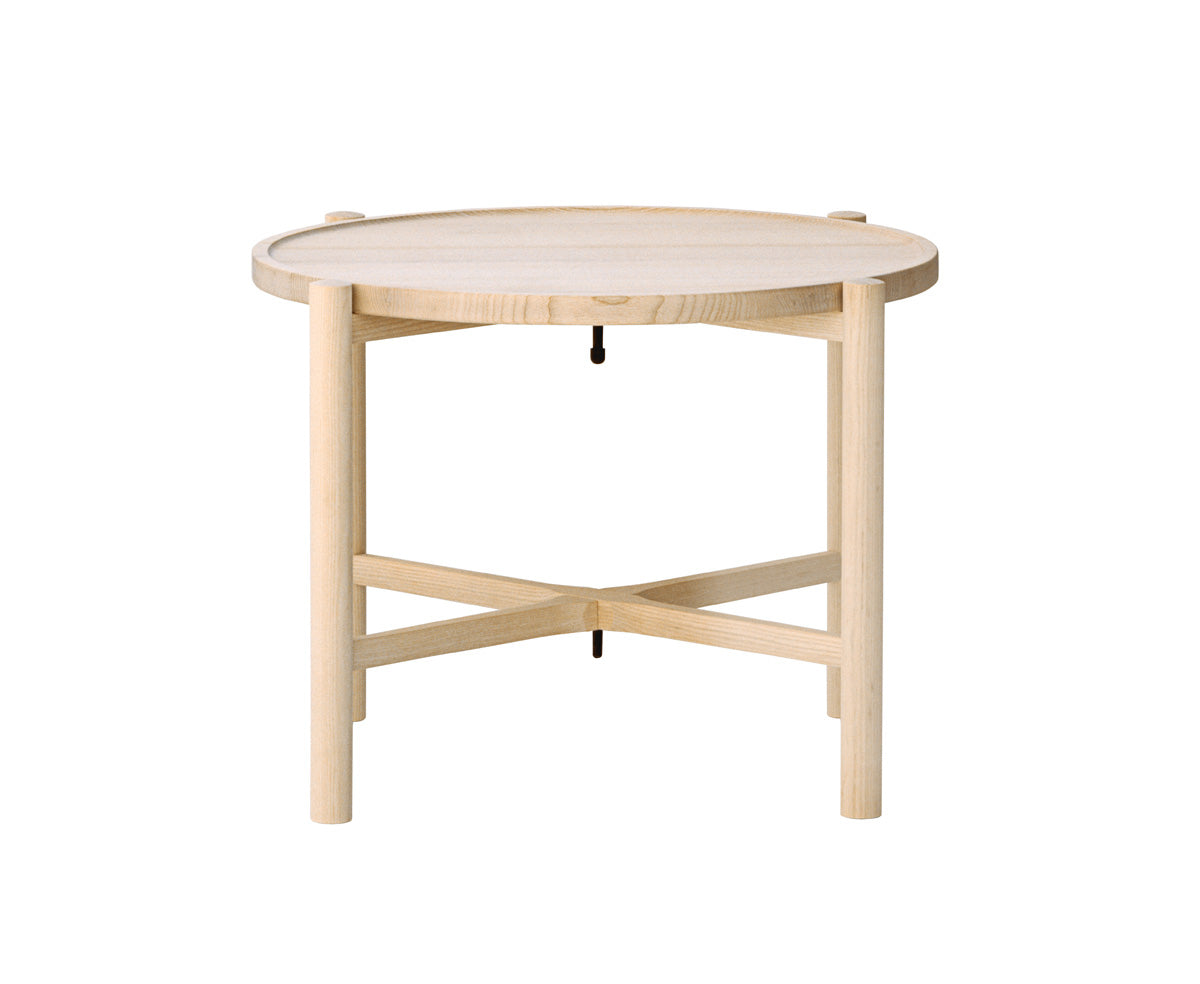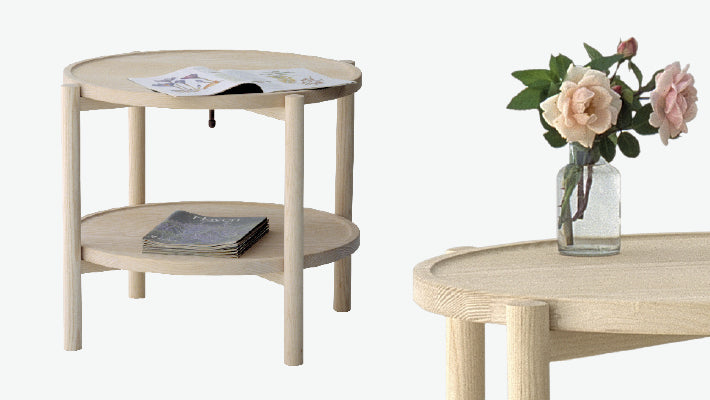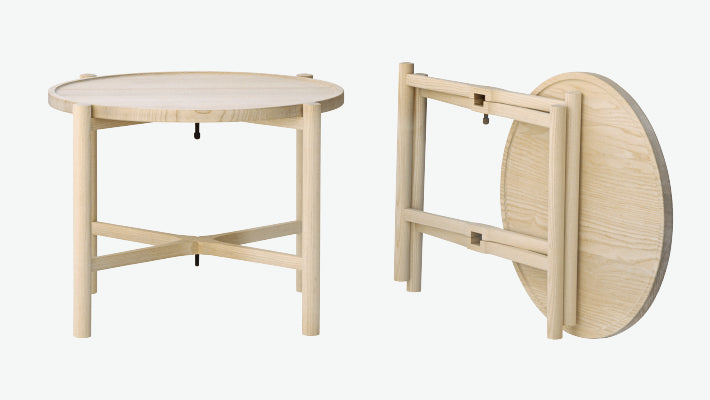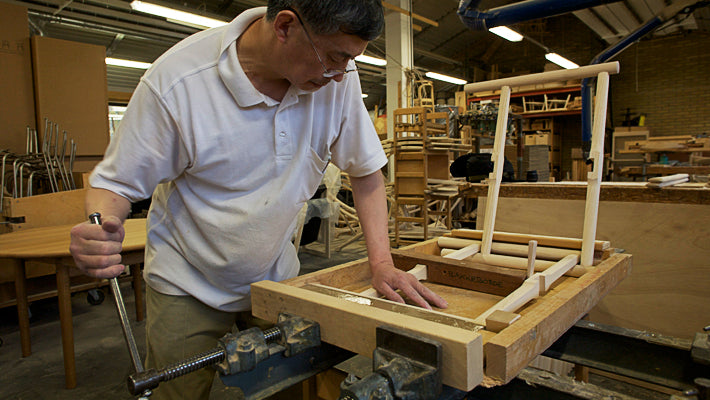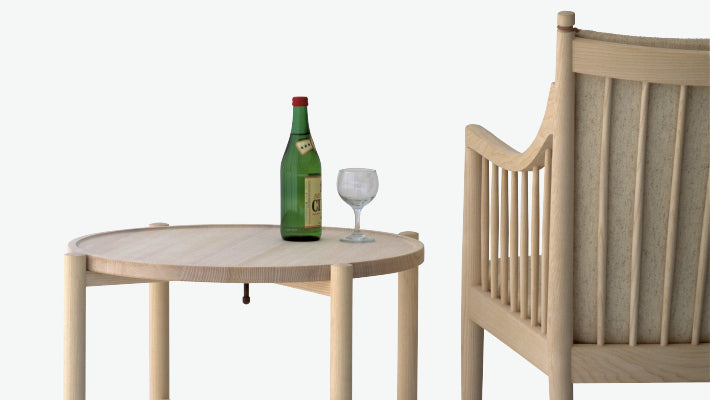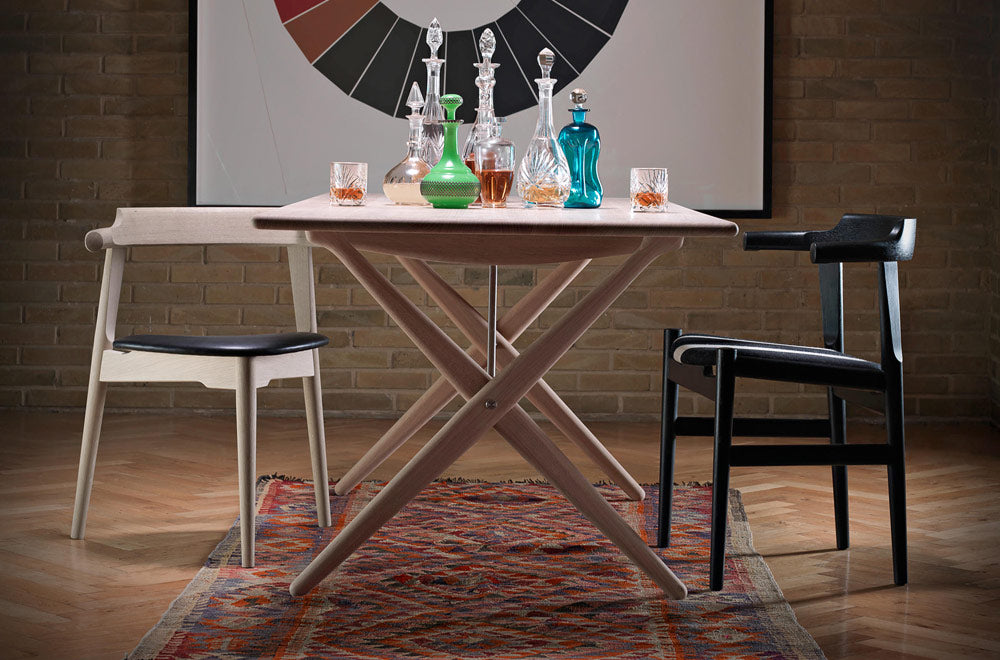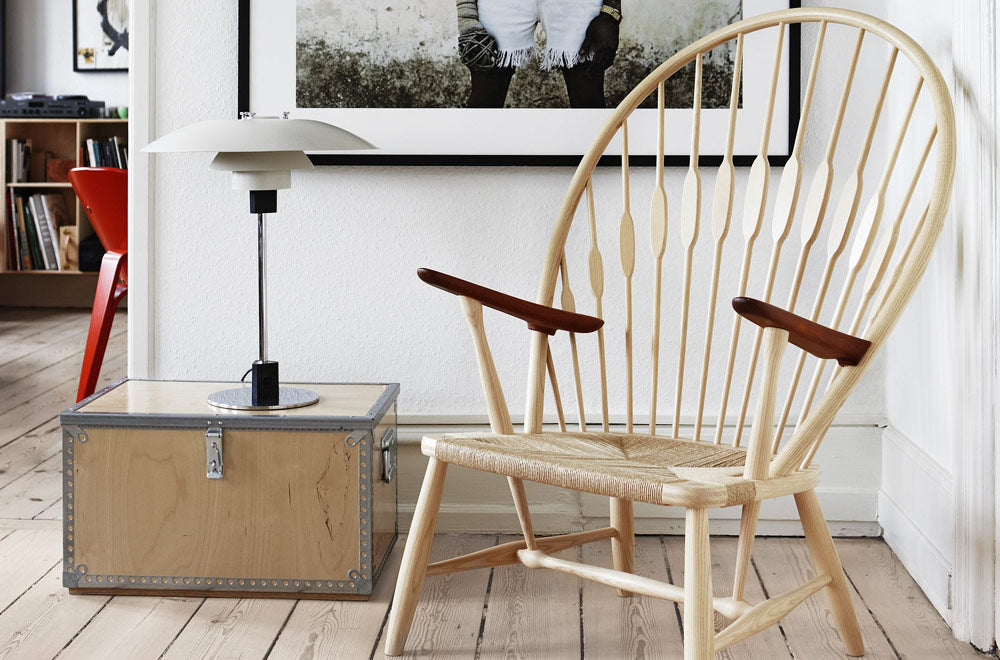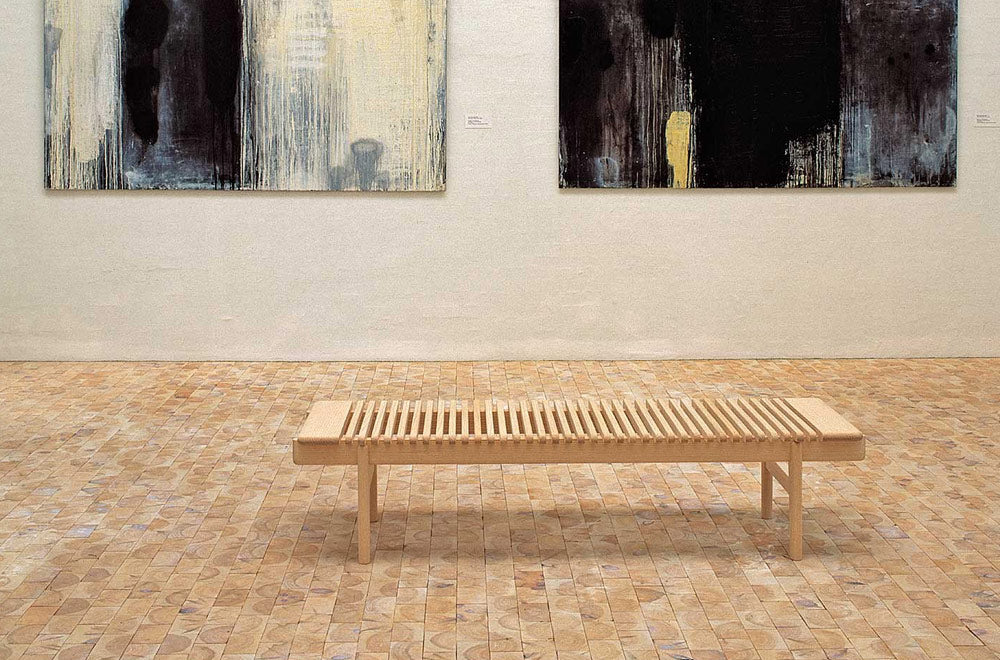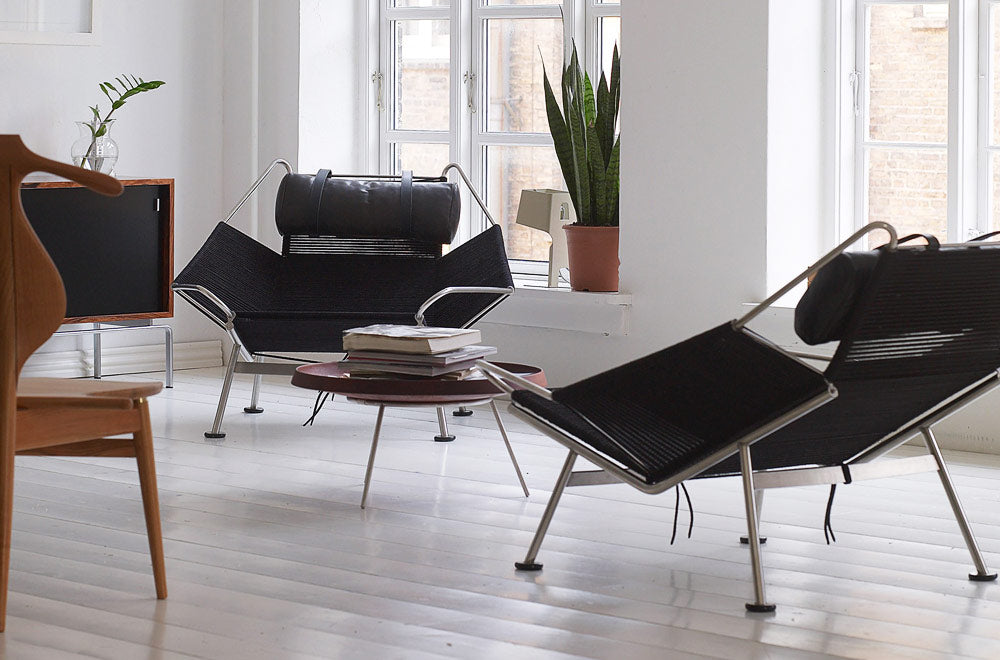The Tray Table stands as a symbol of the most refined balance between functionalism and purity, one could possibly obtain in a solid wood product. It seems to be a logic truth that the static foldable frame will hold the modest wooden tray with elegance and grace for eternity.
The simple tray made of solid wood is unattached, and the table frame can easily be folded and put away. An additional tray can even be placed as a shelf resting on the lower bars.
This practical and usable product is based on the modern geometrical lines of the pp66 Chinese Chair. This pure and logic design concept is executed so that it is almost a non-design, and thus the Tray Table stands as a universal product that will fit in almost any interior.
Son of a shoe-maker in southern Jutland, Hans Wegner, finished his formal training as a cabinetmaker with master cabinetmaker Stahlberg in 1930 before starting at Teknologisk Institut in Copenhagen. He soon moved to the School of Arts and Crafts in the Danish capital where he became architect in 1938, and started teaching in 1946.
In 1940 he joined Arne Jacobsen and Erik Møller in Arhus, to design the furniture for the new Arhus city hall. He started to work with 'minister' cabinetmaker Johannes Hansen in 1940 and showed his first furniture in the famous Hansen store on Bredgade 65 in 1941. Johannes Hansen was more than twice as old as the 26 year old Wegner but the unique collaboration between the two became the undisputed backbone of Danish furniture design and the main reason for it's world wide recognition in the fifties and sixties. The Copenhagen Museum of Art and Industry acquired the first Wegner chair in 1942.
In 1943 he started his own design office and 1 year later designed the first of a long series of 'chinese' chairs inspired by portraits of Danish merchants sitting in Ming chairs for Fritz Hansen. In 1950 Wegner designed the “Wishbone Chair” produced by Carl Hansen & Søn in Odense which became the most successful of all Wegner chairs. Most well known for it’s use by Kennedy and Nixon in their famous CBS TV debate of 1960.






